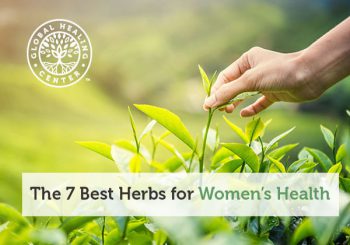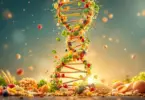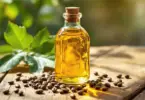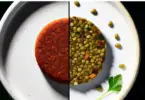Guest Writer for Wake Up World
Herbs are widely used by people all over the world, mostly by those seeking alternatives or adjuncts to traditional pharmaceuticals. While no one herb will solve every health issue, the research shows that specific chemicals within certain herbs have the power to affect biological function. Herbs for women’s health have been researched extensively over the past few decades, with many showing promise for improving libido, supporting energy levels, and elevating mood.
[pro_ad_display_adzone id=”110028″]
The Top 7 Herbs for Women’s Health
Many scientists believe that specific chemicals isolated from plant materials and then extracted provide the most benefit to human health. Still, the whole herb, when used in conjunction with other herbs that provide similar chemical constituents and/or health benefits, is equally as effective. Here are some of the top herbs, extracted or otherwise, that have shown benefit to female health.
1. Muira puama
Muira puama is also known as ‘potency wood,’ and for very good reason. One study evaluating over 200 women found that the bark and root of muira puama significantly stimulated libido. [1] Over 65% of women in the study had better sexual satisfaction and orgasm intensity. Muira puama may also be helpful for increasing motivation for sex, supporting energy for day-to-day activities, and stress reduction. [2]
2. Ashwagandha
Ashwagandha is an ancient Indian herb that is said to support female reproduction and libido. The herb has been used for centuries to combat stress in women and men alike. Ashwagandha specifically targets the endocrine system and encourages hormonal balance. One study with over 50 menopausal women looked into the effects of supplementing with ashwagandha and found a significant decline in symptoms such as anxiety, hot flashes, and mood. [3] Ashwagandha has been used to support good mood for centuries, and research is beginning to find that the plant may play a powerful role in combating mental and emotional stress. [4] This makes ashwagandha a potent tool against mood swings.
3. Tribulus terrestris
Tribulus terrestris is also used for supporting hormonal balance, and research hints at its role for boosting female libido. Tribulus has plenty of research behind it for supporting libido in both men and women. An important study showed that tribulus improved desire for intercourse in 49 out of 50 female participants. [5] A recent study from 2014 found that female desire, arousal, and satisfaction is greatly improved following tribulus supplementation. [6] The herb may also combat mood swings commonly experienced during the menstrual period. Similar in action as kava kava, tribulus terrestris may positively improve mood and reduce stress and anxiety. [7]
4. Maca
Maca root is a popular herbal tool commonly used by men to support healthy hormone levels; however, women also report great benefits balancing hormonal levels with maca. While studying the root for its potential weight loss benefits, researchers observed that women enjoyed a significant reduction in common menopausal symptoms, such as hot flashes, night sweats, and depressed mood. [8] Another similar study found beneficial effects of maca supplementation on menopause symptoms. [9] Supporting healthy libido in women is also a benefit of using maca. One important study found that supplementation with maca was effective for combating sexual dysfunction in women, particulary after taking SSRI, a commonly-prescribed antidepressant. Throughout the study, women enjoyed improvement in sexual satisfaction with three grams of maca per day. [10]
5. Avena Sativa
Natural aphrodisiacs have been used successfully for thousands of years, with avena sativa being no exception. Also referred to as ‘oat straw,’ avena sativa is a powerful natural aphrodisiac, and recent research is validating its common use. [11] Oats may also support bone health, which is important because osteoporosis is more common in women than it is in men. Avena sativa is rich in calcium, a nutrient that plays an important role – along with vitamin D and vitamin K – in bone density. Oat straw increases levels of luteinizing hormone in rats, a hormone that is crucial for stimulating cell growth. This may help initiate bone cell production, possibly supporting bone health. [12]
6. Catuaba
The catuaba tree was first utilized by the Tupi Indians in Northern Brazil, who brewed the leaves to make an aphrodisiac tea. Traditional cultures have used catuaba bark for a wide range of benefits, but its potent aphrodisiac qualities is perhaps its most popular application. Catuaba bark contains the chemical yohimbine, the active compound that provides a stimulatory effect. [13]
7. Suma
Usually referred to as South American Ginseng, suma is often used to support stamina. Natives in the Amazon have looked toward Suma root for aiding libido in women, and research confirms this ancient belief. Some research also suggests that suma root may be helpful for supporting female fertility by balancing hormone levels. This is especially important today as the world becomes increasingly overwhelmed with hormone disruptors. [14] Research shows that suma root can be helpful for encouraging estradiol-17 beta, an estrogen hormone produced in women during reproduction years, further improving hormone balance. [15]
Supplementing With These Herbs
Herbs are an excellent complementary approach to an overall healthy lifestyle, and as you can see above, research supports it as a powerful way to support female health. Many of the above herbs are found in Women’s Hormone Balance, carefully paired with other similar organic herbs that support physical drive and function. Avoiding environmental endocrine disruptors, like plastics and pesticides, can also be a great way to protect your hormones. Getting enough sleep, staying physically active, and receiving an optimum level of sunlight exposure are also excellent methods you can use to keep hormones running smoothly. Have you been experiencing hormonal issues lately? What have you been doing to get it back into balance? We’d love to hear your thoughts!
References:
- Waynberg J1, Brewer S. Effects of Herbal vX on libido and sexual activity in premenopausal and postmenopausal women. Adv Ther. 2000 Sep-Oct;17(5):255-62.
- Mendes FR1, Carlini EA. Brazilian plants as possible adaptogens: an ethnopharmacological survey of books edited in Brazil. J Ethnopharmacol. 2007 Feb 12;109(3):493-500.
- Modi MB1, Donga SB, Dei L. Clinical evaluation of Ashokarishta, Ashwagandha Churna and Praval Pishti in the management of menopausal syndrome. Ayu. 2012 Oct;33(4):511-6. doi: 10.4103/0974-8520.110529.
- Bhattacharya SK, Bhattacharya A, Sairam K, Ghosal S. Anxiolytic-antidepressant activity of Withania somnifera glycowithanolides: an experimental study. Phytomedicine. 2000 December;7(6):463-9.
- Mazaro-Costa R1, Andersen ML, Hachul H, Tufik S. Medicinal plants as alternative treatments for female sexual dysfunction: utopian vision or possible treatment in climacteric women? J Sex Med. 2010 Nov;7(11):3695-714. doi: 10.1111/j.1743-6109.2010.01987.x.
- Akhtari E, Raisi F, Keshavarz M, Hosseini H, Sohrabvand F, Bioos S, Kamalinejad M, Ghobadi A. Tribulus terrestris for treatment of sexual dysfunction in women: randomized double-blind placebo – controlled study. Daru. 2014 Apr 28;22(1):40.
- Wang Z1, Zhang D, Hui S, Zhang Y, Hu S. Effect of tribulus terrestris saponins on behavior and neuroendocrine in chronic mild stress depression rats. J Tradit Chin Med. 2013 Apr;33(2):228-32.
- Meissner HO1, Reich-Bilinska H, Mscisz A, Kedzia B. Therapeutic Effects of Pre-Gelatinized Maca (Lepidium Peruvianum Chacon) used as a Non-Hormonal Alternative to HRT in Perimenopausal Women – Clinical Pilot Study. Int J Biomed Sci. 2006 Jun;2(2):143-59.
- Meissner HO1, Kapczynski W, Mscisz A, Lutomski J. Use of gelatinized maca (lepidium peruvianum) in early postmenopausal women. Int J Biomed Sci. 2005 Jun;1(1):33-45.
- Dording CM1, Fisher L, Papakostas G, Farabaugh A, Sonawalla S, Fava M, Mischoulon D. A double-blind, randomized, pilot dose-finding study of maca root (L. meyenii) for the management of SSRI-induced sexual dysfunction. CNS Neurosci Ther. 2008 Fall;14(3):182-91. doi: 10.1111/j.1755-5949.2008.00052.x.
- Malviya N, Jain S, Gupta VB, Vyas S. Recent studies on aphrodisiac herbs for the management of male sexual dysfunction–a review. Acta Poloniae Pharmaceutica. 2011 January-February;68(1):3-8.
- Fukushima M, Watanabe S, Kushima K. Extraction and purification of a substance with luteinizing hormone releasing activity from the leaves of Avena sativa. The Tohoku Journal of Experimental Medicine. 1976 June;119(2):115-22.
- Oliveira CH1, Moraes ME, Moraes MO, Bezerra FA, Abib E, De Nucci G. Clinical toxicology study of an herbal medicinal extract of Paullinia cupana, Trichilia catigua, Ptychopetalum olacoides and Zingiber officinale (Catuama) in healthy volunteers. Phytother Res. 2005 Jan;19(1):54-7.
- Buck Louis GM, Sundaram R, Schisterman EF, Sweeney AM, Lynch CD, Gore-Langton RE, Maisog J, Kim S, Chen Z, Barr DB. Persistent environmental pollutants and couple fecundity: the LIFE study. Environmental Health Perspectives. 2013 February;121(2):231-6.
- Oshima M1, Gu Y. Pfaffia paniculata-induced changes in plasma estradiol-17beta, progesterone and testosterone levels in mice. J Reprod Dev. 2003 Apr;49(2):175-80.
Originally published at Global Healing Center and reproduced here with permission.
Recommended articles by Dr. Edward Group:
- What Is Body Scan Meditation and How Can It Help You Relax?
- 12 DIY Cleaning Recipes — From Hand Sanitizer to Floor Cleaner!
- Cordyceps Fungus: Top 7 Benefits of This Miracle Mushroom
- 10 Best Herbs for Kidney Cleansing
- Natural Remedies for Anxiety: 8 Tips to Find Relief
- What’s the Best Time to Take Vitamins?
- Moringa for Weight Loss: How Does It Work?
- Top 13 Nootropic Supplements to Sharpen Mind and Mood
- Mental Clarity: 9 Solutions That Work
- Everything You Need to Know About Hemp vs. CBD
About the author:
Dr. Edward F. Group III (DC, ND, DACBN, DCBCN, DABFM) founded Global Healing Center in 1998 with the goal of providing the highest quality natural health information and products. He is world-renowned for his research on the root cause of disease. Under his leadership, Global Healing Center earned recognition as one of the largest natural and organic health resources in the world. Dr. Group is a veteran of the United States Army and has attended both Harvard and MIT business schools. He is a best-selling author and a frequent guest on radio and television programs, documentary films, and in major publications.
Dr. Group centers his philosophy around the understanding that the root cause of disease stems from the accumulation of toxins in the body and is exacerbated by daily exposure to a toxic living environment. He believes it is his personal mission to teach and promote philosophies that produce good health, a clean environment, and positive thinking. This, he believes, can restore happiness and love to the world.
For more, please visit Global Healing Center.
[pro_ad_display_adzone id=”110027″]








